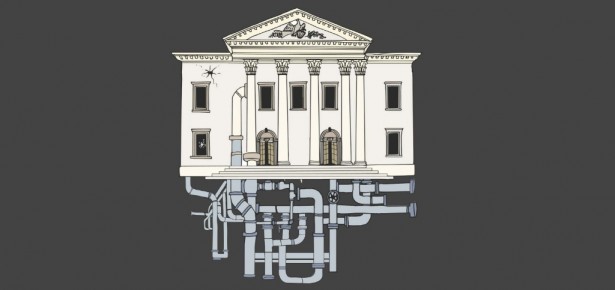
When the Federal Reserve, European Central Bank and Bank of England purchased bank and state debt during the 2007–2008 crisis, it became apparent that, when technically divorced from fiscal policy, monetary policy cannot revive but only prevent economic activity deteriorating further. Pixley explains how conflicting social forces shape the diverse, complex relations of central banks to the money production of democracies and the immense money creation by capitalist banking. Central banks are never politically neutral and, despite unfair demands, are unable to prevent collapses to debt deflation or credit/asset inflation. They can produce debilitating depressions but not the recoveries desired in democracies and unwanted by capitalist banks or war finance logics. Drawing on economic sociology and economic histories, Central Banks, Democratic States and Financial Power will appeal to informed readers interested in studying democracies, banks and central banking’s ambivalent positions, via comparative and distributive perspectives.
Most studies of central banks depict them in glorious isolation, barely remarked until huge financial crises give them undue publicity. That personalising obscures the powerful activities of banking sectors and governments. Sociologists maintain that any institution is in complex relations to its direct officials and social forces slogging to gain ground in economic-political fields. Central banks are created and directed by states, to appease financial sectors and to serve citizens (rarely) in collaboration with their democratic state.
Central Banks, Democratic States and Financial Power is striking in three ways. In asking who wanted central banks (first), the goals of government and banking are revealed, even producers’ and citizens’ aims for establishing a central bank (or not). These depend on the place and time, although money creation – states with central banks, and capitalist banks – is the driver of conflicts for war and peace.
The book only gestures (second) to pre-democratic times when populations had no say in monetary policy and endured every misery that central banks imposed. Not unguided, since employers, capitalist states, mighty banks, the military and industry are rarely peaceful or decent. Accordingly, I start with World War I’s belligerents to trace international changes in money via war debts, and the huge growth of electoral inclusion, with social democratic governments aiming for everyone’s improvement. That includes bitter class struggles over beliefs in money’s value, let alone any global central bank. Only a few central banks are chosen from nations large and small, to glimpse at options obfuscated by the hegemonic country of the time. Global capitalist banks (e.g. Wall Street) are not the sole counter-actors because governments are equally more and less trustworthy or war-like.
Such conflicts mean (third) that central banks are not technical entities that can manage inflations alone, without mild to savage deflation. Some are designed to serve capitalist banks, and in World War I straddled states’ demands for war finance, to favour banks which were believed to guarantee the advances they made for warfare. At a cost. WWI treasuries created the first full employment since capitalism’s beginnings, and the hopes that jobs and democratic processes offered have been a battlefield ever since.
Central banks obey orders, with the 1970s ushering in stagnation, wage declines and capitalist bank-created inflations. Occasionally decency emerges, although the book shows central banks’ weaknesses, not just for non-imperialising ones. None can restore economic activity without social democratic governments committed to civil public purposes that we thought democracy should provide. Conflicting class and nationalist forces intervene, unpredictably, whether their long-term interests are understood or usually not, of money as mutual social obligations and promises into the future.
Also see Critical Junctures in Mobile Capital – co-edited by Jocelyn Pixley.
Latest Comments
Have your say!